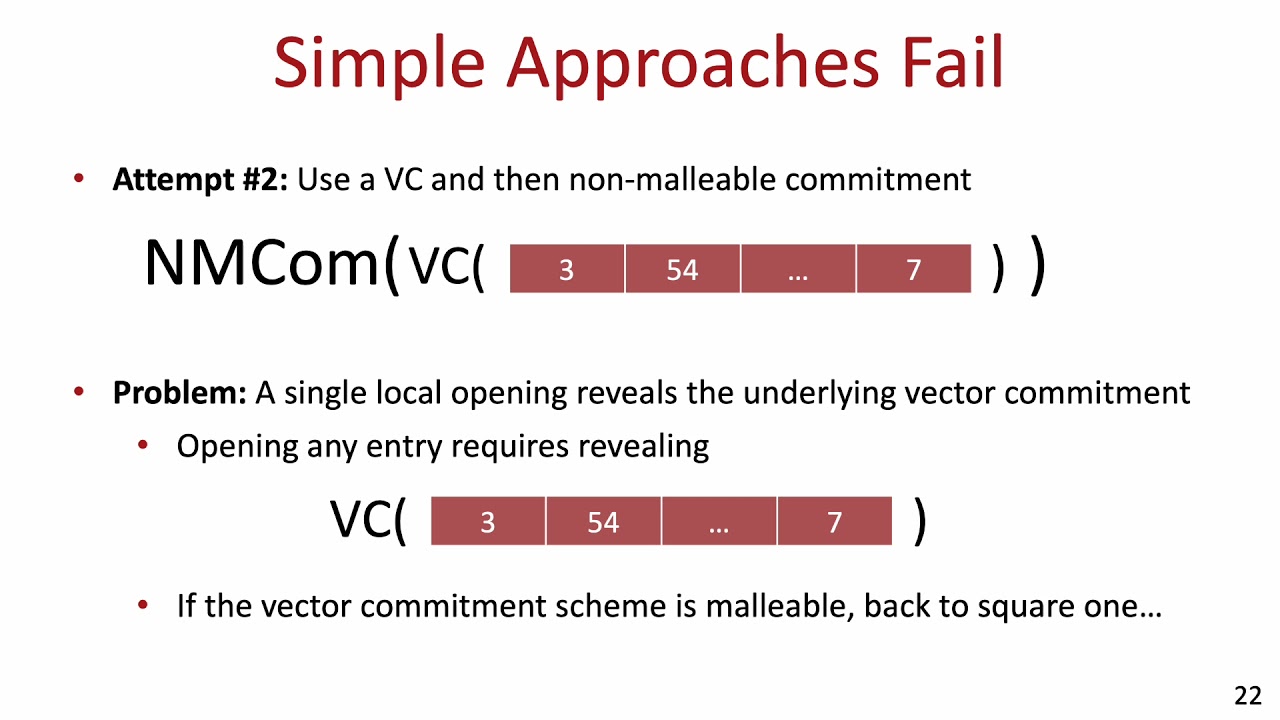Welcome to the resource topic for 2021/1207
Title:
Non-Malleable Vector Commitments via Local Equivocability
Authors: Lior Rotem, Gil Segev
Abstract:Vector commitments (VCs), enabling to commit to a vector and locally reveal any of its entries, play a key role in a variety of both classic and recently-evolving applications. However, security notions for VCs have so far focused on passive attacks, and non-malleability notions considering active attacks have not been explored. Moreover, existing frameworks that may enable to capture the non-malleability of VCs seem either too weak (non-malleable non-interactive commitments that do not account for the security implications of local openings) or too strong (non-malleable zero-knowledge sets that support both membership and non-membership proofs). We put forward a rigorous framework capturing the non-malleability of VCs, striking a careful balance between the existing weaker and stronger frameworks: We strengthen the framework of non-malleable non-interactive commitments by considering attackers that may be exposed to local openings, and we relax the framework of non-malleable zero-knowledge sets by focusing on membership proofs. In addition, we strengthen both frameworks by supporting (inherently-private) updates to entries of committed vectors, and discuss the benefits of non-malleable VCs in the context of both UTXO-based and account-based stateless blockchains, and in the context of simultaneous multi-round auctions (that have been adopted by the US Federal Communications Commission as the standard auction format for selling spectrum ranges). Within our framework we present a direct approach for constructing non-malleable VCs whose efficiency essentially matches that of the existing standard VCs. Specifically, we show that any VC can be transformed into a non-malleable one, relying on a new primitive that we put forth. Our new primitive, locally-equivocable commitments with all-but-one binding, is evidently both conceptually and technically simpler compared to multi-trapdoor mercurial trapdoor commitments (the main building block underlying existing non-malleable zero-knowledge sets), and admits more efficient instantiations based on the same number-theoretic assumptions.
ePrint: https://eprint.iacr.org/2021/1207
Talk: https://www.youtube.com/watch?v=fT77JmhxEjo
See all topics related to this paper.
Feel free to post resources that are related to this paper below.
Example resources include: implementations, explanation materials, talks, slides, links to previous discussions on other websites.
For more information, see the rules for Resource Topics .
